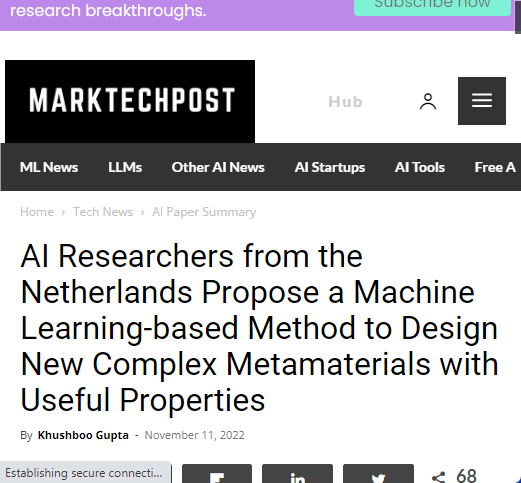AI Researchers in the Netherlands propose a machine learning-based method to design new complex metamaterials with useful properties
Combinatorial problems are common in puzzles, origami and metamaterial design. These problems are rare and have a limited number of solutions. They generate complex boundaries in the configuration space. Capturing these boundaries using standard statistical and numeric techniques is quite difficult. Can you flatten 3D origami without damaging it? This is a good example of a combinatorial problem. This is because each fold must be consistent with the flattening. It’s difficult to predict such results by simply looking at the design. The UvA Institute of Physics, in collaboration with the AMOLF research center, has shown that machine learning techniques can be used to answer these questions.
Convolutional Neural Networks can distinguish the boundaries of metamaterials with great precision, even when they are trained on severely undersampled data. The network can infer the basic combinatorial rules by using sparse data. This, according to the research team, will make it easier for artificial intelligence to develop sophisticated metamaterials. In a recent study, the team examined the accuracy in forecasting characteristics of these combinatorial metamaterials by using artificial intelligence. Their work was also published in Physical Review Letters.
Artificial materials are controlled by their geometrical structures rather than their chemical composition. Metamaterials like origami are a good example. It is the way an origami is folded that determines its ability to flatten, not the type of paper. The clever design allows us to precisely control the bending, bulging, and buckling of metamaterials. This technology can be applied to a variety of different applications, including satellite solar panels which unfold and shock absorbers.
Source:

Leave a Reply